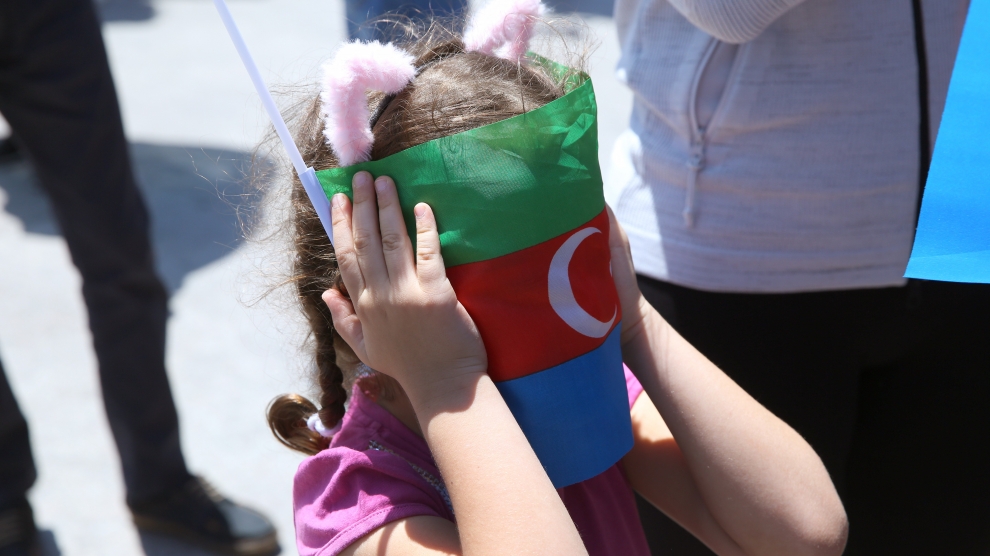The results of Azerbaijan’s parliamentary election, held on February 9, offered little in the way of surprise.
The ruling New Azerbaijan party (Yeni Azerbaijan; YAP), which supports Ilham Aliyev, the country’s authoritarian president, claimed an easy victory and is set to increase its majority in the rubber stamp legislature.
Latest data from the Central Election Commission of Azerbaijan shows that YAP candidates won 81 of the 125 seats up for grabs, 16 more than it won during parliamentary elections in 2015. Turnout was 48 per cent, almost eight per cent less than five years ago.
The rest of the seats were picked up by other pro-government parties and ostensibly independent politicians who either support or are associated with Yeni Azerbaijan.
The country’s actual opposition parties boycotted the vote.
As with all electoral contests held since Mr Aliyev became president in 2003 (when he took over from his father, Heydar), the snap election failed to meet general democratic standards.
According to the Organisation for Security and Cooperation in Europe (OSCE), despite the record number of candidates running for parliament and an inclusive candidate registration process, “the restrictive legislation and political environment prevented genuine competition, while some candidates were denied the right to stand, with voters not having been provided with a meaningful choice due to the lack of political discussion.”
“I regret very much that what could have been improvements did not lead to a competitive environment enabling truly democratic elections. Counting on election day was disappointing. I would have hoped for some real changes. The absence of any serious coverage of the campaign in traditional media and the lack of debate in public and on television are some of the reasons for low public attention,” said Artur Gerasymov, special coordinator and leader of the OSCE short-term observer mission in Baku.
He did, however, point out that he valued the efforts made by the Azerbaijani government to allow internally displaced people from the disputed Nagorno Karabakh region to take part in the election.
Further election violations were reported by a joint monitoring mission made up of members of the OSCE, the Parliamentary Assembly of the Council of Europe, as well as other international and Azerbaijani organisations.
The violations included the stuffing of ballot boxes, the blocking of video cameras, preventing monitors from entering polling stations, and even the use of an ambulance to allegedly carry votes from one polling station to another.
Mr Aliyev called for snap elections in December last year, arguing that the country needs legislative change so that Yeni Azerbaijan would be able to carry out a reform programme put forward by the president himself.
The elections follow high-profile changes in the Azerbaijani government, including the appointment of Ali Asadov, a new prime minister, last October. They also took place amidst growing public dissatisfaction with the country’s economic performance, primarily the result of a drop in global energy prices that has significantly damaged the manat, the country’s energy-dependent national currency.
The results of the vote, and the manner in which it was held, suggest that the election was part of a wider process aimed at consolidating Mr Aliyev’s power, improving his government’s image by replacing politicians related to old elites with younger bureaucrats.
While some in Azerbaijan will view this as a sign of modernisation, it does not represent a step towards wider democratisation. According to the Economist Intelligence Unit’s latest Democracy Index, the country remains a dictatorship, in which there appears to be no credible possibility of the political opposition gaining power.
“The only purpose [of the election] was to put a number of candidates out of parliament and bring new ones in their place – and nothing else,” Mehman Aliyev, the director of the independent Turan news agency told RFE/RL.
Since a constitutional referendum in 2016 – itself beset by irregularities – that strengthened Mr Aliyev’s position, Azerbaijan’s parliament has had little real power.






Add Comment